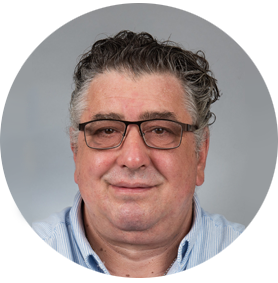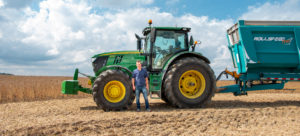
The mission of the Ceresco Academy is to be a privileged meeting point with producers to promote the highest standards of quality and thus maximise their success.
DISCOVER THE BENEFITSCategories
- Alliance & growth
A tip of our cap to some successful, deep-rooted producers.
- Insights videos
Quickly benefit from valuable insights from our experts.
- Tools and Calculators
Quickly benefit from valuable insights from our experts.
- Useful documents and links
Quickly benefit from valuable insights from our experts.
- All publications

Tools and Calculators

Useful documents and links
THE CERESCO ACADEMY PRESENTS
Alliance & growth
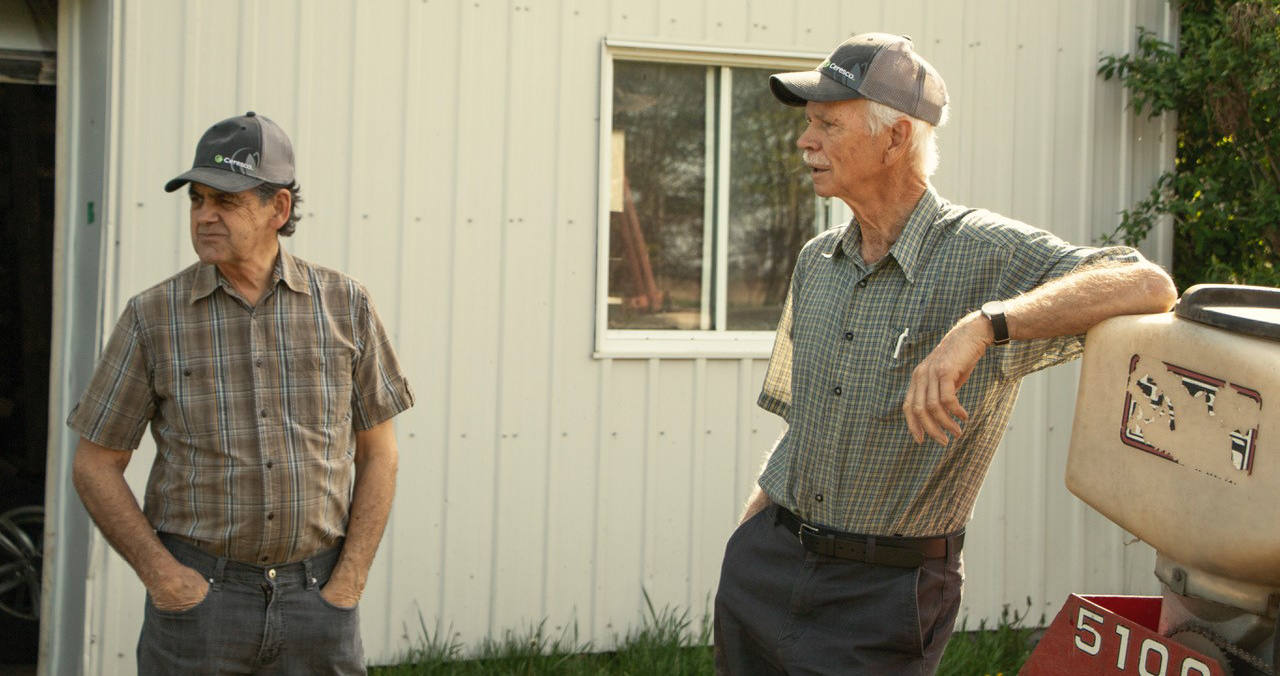
June 2021
Janlau Farm : A third of a century in organic production
PRODUCER’S NAME
Jean Côté and Laurent Lefebvre
FARM NAME
Ferme Janlau S.E.N.C
REGION : Central Quebec
CERESCO PRODUCER SINCE
1994
FARM SIZE
200 hectares / 500 acres
2021 crop varieties
AAC Kovik
2020 crop varieties
AAC Kovik
AAC Rubicon

"Mr Jean Côté (left) and Mr Laurent Lefebvre in a rye field"
Janlau farm is located in Central Quebec, more precisely a few kilometres away from lac Saint-Pierre and Nicolet, on the rang du Pays-Brûlé in Baie-du-Febvre. The farm is owned by Jean Côté and Laurent Lefebvre, brothers-in-law who have been cultivating their certified organic land for more than 30 years now. They were often considered as oddballs in a sea of conventional crops.
Normal Beginnings
The farm came to legally in 1973 and consisted of a small dairy farm and around 500 acres of hay, cereals, soybeans, and corn production. In 1984, the decision to convert to an organic farm was taken. It was in 1987 that the fields received their organic certification. Dairy production, however, stayed conventional. « Organic production is a way of living in harmony with the land while aiming for good production and very advantageous crop selling prices. Six generations ago, my ancestors produced organically – not by choice, but because they were too poor to buy fertilizer. Crop yield was very low and quality was absent », explains Jean Côté.
In 1997, the two partners decided to sell the cows to devote themselves solely to cash crops. Manure that served as fertilizer and that brought organic matter would now be absent. Jean Côté underlines :
« We had to rethink our crop strategy to integrate plants that would bring organic matter and nitrogen, as well as catch deeply bedded nutrients and bring them back to the surface. »
An efficient rotation strategy
The producers were well supported by already established organic cash crop producers and the CETAB (Centre of expertise and transfer in organic agriculture) agronomists. They have opted for a nine years rotation, with a quarter of the field in meadows of legumes and of Gramineae that are kept in production for three years to allow their root system to establish itself deeply. After the second hay cut of the third year, the soil is vigorously worked when very dry, which has the same effect as chemical weeding. Then, the land is left fallow until mid-September for the sowing of winter cereals. After the working of the meadows, six years of cereal/soybean crop rotations take place. «We have experimented with several crops throughout the years, but we are now pretty well established in our rotations, » explains the producer.
Of the 412 acres in production in 2021, 70 will be devoted to soybean, 21 to spring bread wheat, 12 to malting barley, 11 to fall spelled, 15 to fall rye, and 38 to hay.

"Mr. Coté and Mr. Lefebvre evaluating the AAC Kovik seedlings made in the spring of 2021. "
Marketing organic grains
To market organic grains, the producers work with local buyers who are willing to pay more for the quality of their grains. Spelled, rye, and bread wheat are sold to small flour mills in Quebec and then marketed to artisan bakeries or directly to consumers. Malting barley is sent to local malthouses on the north shore of the Saint-Lawrence river who then sell it to microbreweries.
Soybeans, the most profitable of the farm’s crops, according to Jean Côté, is produced under contract for Ceresco. « We’ve been dealing with Ceresco for 27 or 28 years now. We have always appreciated the customer service and worked in collaboration with our agronomic advisor from Ceresco. He is highly competent and friendly, and he comes several times during the growing season to make sure everything is right. Storage and transport conditions are also advantageous. After December 31st, we receive an allowance to pay for storage fees and a good portion of our transportation cost is also reimbursed.
« It’s not always easy to get the quality required for human consumption in organic farming… but we can count on the Ceresco team to help us find a solution. »
If on occasion, we have a delivery that is not of as good quality, we can count on the Ceresco team to help us find a solution. This year, we will be producing the AAC Kovik soybean variety. It will be our second year growing this variety and we are very satisfied with it. It has bigger grains (4 700 grains/kg), a maturity of 2650 UTM, and a very good yield. It branches well and closes the rows quickly, which is important in organic production to control weeds », says Jean Côté.
What’s next
Both associates, now in their 70s, are looking to transfer their farm in the foreseeable future. One of their nephews, Jean-Sébastien Tardif, currently works with them and has shown interest in taking over. With a diploma in Mechanics, he appreciates farm work, especially when it involves tractors equipped with GPS. This new generation loves electronics, which facilitate and speed up fieldwork.
However, Jean Côté deplores the lack of government support for the next generation. Forty years ago, subsidies were about the same as today. With the price of land that has exploded and today’s cost of machinery and equipment, it’s almost like there were none. Maybe other alternatives will see the light of day in order to help this young man. Only time will tell!
Back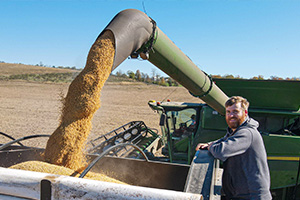
Devoted to Agriculture for 5 Generations and Counting
Alliance & growth
Ian Laver, a young producer from Warkworth – Ontario, shares his passion for farming done well. Discover how he increased his income by growing IP soybeans.
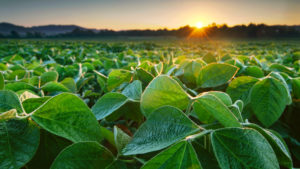
Spotlight on Camil Tétreault, a true passionate Do-it-Yourselfer
Alliance & growth
Passion, efficiency, discipline, and innovation are the four words that best sum up the agricultural career of Camil Tétreault and his long-standing partner, his wife Murielle.
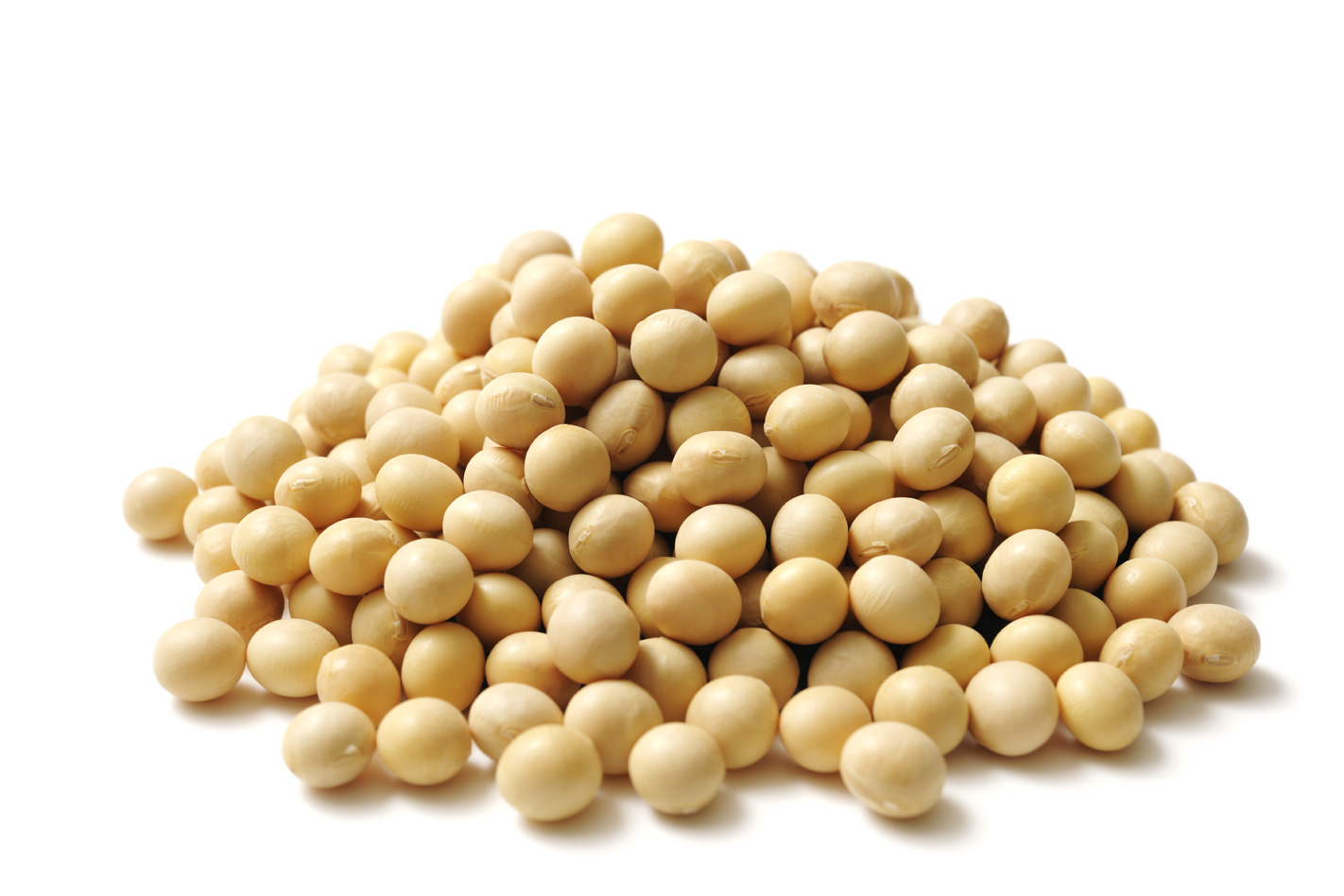
Soy
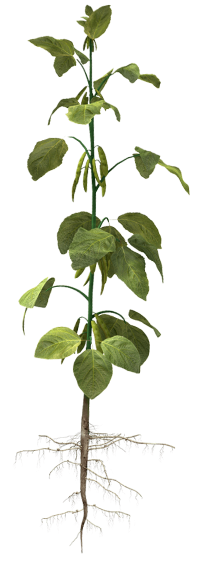
Experts
